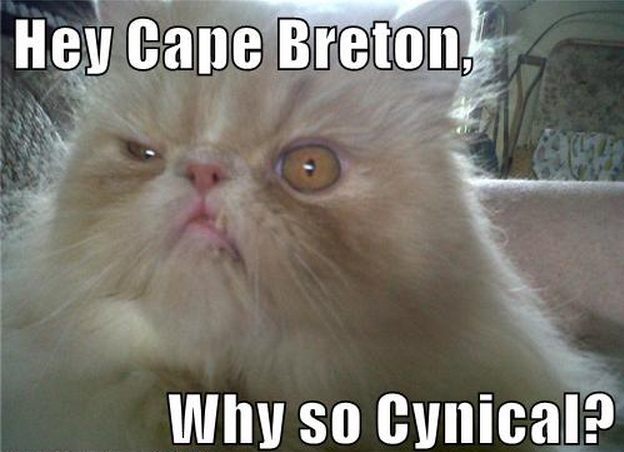
For those of you that only came for the cat picture.

A lot has been said recently about Cape Breton cynicism, from knee-jerk negative reactions to new ideas to the endless skepticism of corporate interests. Maybe it's just me coming into the collective mass euphoria of Cape Breton Springtime, when we all leave our bunker holes and squint at the light of day for the first time in 5 months, but honestly, I sure read about Cape Breton cynicism more than I actually hear about it. But then I read things like this... 
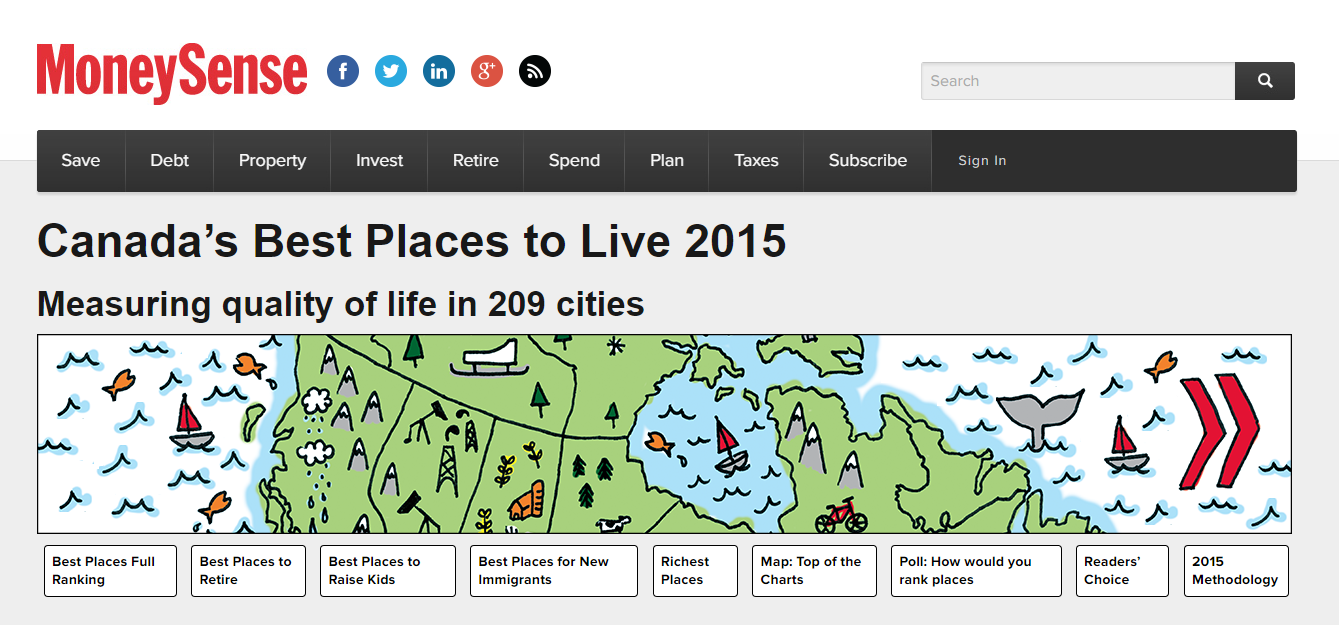
Hey, what an interesting article! I wonder where Sydney lands?

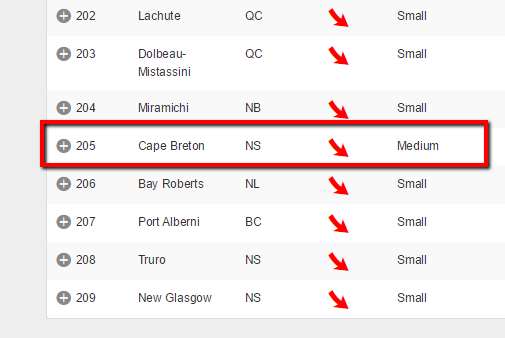
Cape Breton is a City? Oh MoneySense, ya big dummy!

So ok, this post won't be about all the sunshine and rainbows that is living in Cape Breton. Let's see why we're the fifth last "city" on MoneySense's list. Hmmm, high unemployment, stagnant population growth, high taxes, and apparently we all drive old cars? I had no idea anybody kept track of that. Well let's look on the bright side. I live in Canada's 5th worst city and don't lock my doors. If I lived in America's 5th worst city (I'm looking at you, Gary, Indiana) I wouldn't leave the house.


Gary, Idiana. The post-apocalypse of tomorrow, TODAY!

Bright side #2: We beat Truro.... Yay? So ok, there are things to be cynical about in Cape Breton. We've had a rough go the past, um, 40 odd years, and we've taken a fair share of hard knocks and lies in that time, and that can make anybody cynical. Just take a look at the Cape Breton Rant Room on Facebook, and you'll find tons of people that are chronically allergic to optimism. I would take a look, but I don't want to curl up in the fetal position and fall into a sobbing depression coma in my cubicle.


The Cape Breton Rant Room: Where hope and grammar go to die.

Still though, as much as I read negativity, I hear very little, and I think I figured out why. It seems to me the cynicism of Cape Breton really revolves around two narratives most people have come to believe. The first, that businesses are closing all around the island and you have to move out west to make something of yourself. The second, that there just isn't anything to do on this island. Personally, I haven't found either to be true, and it has it has way more to do with the people I surround myself with than the reality of the situation.


George Street. 2015.

Narrative #1 : Businesses and Jobs in Cape Breton are the Stuff of Legend
Yeah, we have a high unemployment. I'm not disputing that, and nobody should. But it seems a lot of people see this:

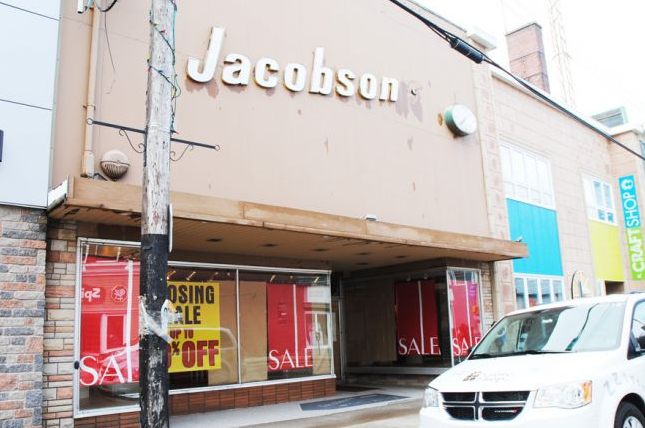
Not you again...

And that's where the story ends, but there's so much more than that. Like MediaSpark , for example (the office I'm sitting in right now). When I tell people I work for MediaSpark, they usually ask "Where is that?" and "What do they do?" Well, we're in the old Sydney Video building on Charlotte Street and we make educational games and simulations, and we also make this super neat new thing called goCapeBreton.com you might have heard of.

I'm pretty happy to be a part of the growing tech community around Cape Breton, that despite our efforts, has remained strangely invisible to the community at large. So when everybody else is bemoaning the fact that there's no good place to buy fedoras in Sydney anymore, I'm hearing stories about the latest piece of steel Protocase is shooting with lasers to blast into space. I'm reading about Marcato going down to Coachellaroostock (or whatever new music festival I'm not hip enough to know about) to organize bands I'm not cool enough to listen to. I'm watching presentations on how Mimir Networks is keeping China from shutting down my precious Reddit, and downloading homegrown apps like PizzaGo! and Shout that won the Spark Competition .

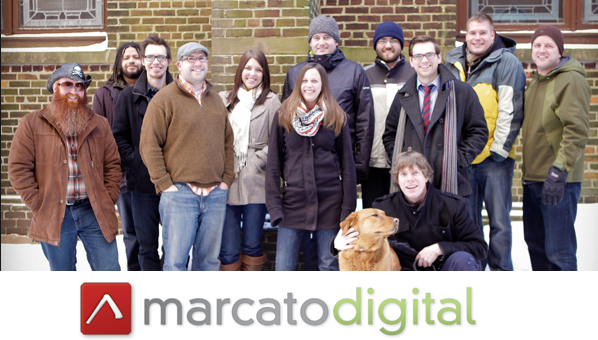
All of these people are cooler than me, and they have a dog. I accept that.

Maybe our small tech boom is guilty of not getting the word out there ourselves. None of these companies really sell their products to locals, so why would they market locally, right? But there could be a more sinister reason people are unaware of these recent successes. These stories don't fit the Cape Breton narrative of a failing economy, so the community chooses to ignore them to keep believing what they think is right. Hey, I'm new around here, but I'll call em like I see em.



No caption necessary.

Narrative #2 : There's Nothing to do in Cape Breton.
Yeah, Cape Breton is a small place. 150,000 people isn't really enough to support an amusement park, Imax theatre, or pro-hockey team. Let me tell you though, I lived in Atlanta, Georgia and Beijing, China, and the same kind of people that complain about having nothing to do here were the same kind of people complaining about having nothing to do there. Whether it's a city of 5 million, 25 million, or an island of 150,000, the first step to finding out what's going on is stepping out your front door (or checking out goCapeBreton.com's handy-dandy events calendar ).
When I first came here 15 months ago, I was new and didn't really know anybody. It was hard to meet people because in a small community like this, why would locals call the new guy on a Friday night when they could call the person they've been hanging out with every Friday night for the last 20 years? I'm not going to lie. It was a rough go, but then I started acting.


When you're acting, you can kiss girls who aren't your girlfriend, and it's totally okay!

Just like the tech community killed the first narrative for me, the theatre community killed the second. What am I doing on Thursday night? Rehearsal. What about Tuesday? Rehearsal. How's about Wednesday? That's actually my macrame class.
And if theatre terrifies you, the fencing class at the Y is great. Art classes at New Dawn. Local bands playing at nearly every bar. Running clubs. Hey, even just go to The Capri on Saturday night. I won't judge.

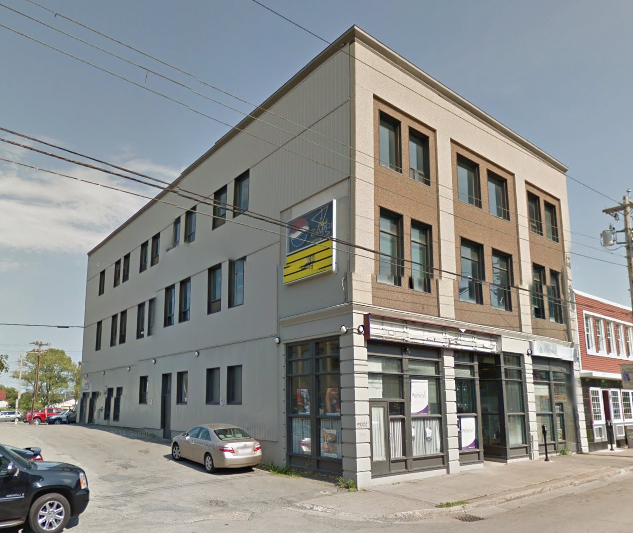
I'll say this about The Capri: It knows what it is and doesn't try to be anything different. I can respect that.

Now that I think of it, Cape Breton really isn't lacking much compared to those bigger cities I lived in. Add in all the nature stuff I didn't mention, and it isn't hard to keep yourself busy. Speaking of outdoorsy stuff, head out to the Dunvegan campground in September and walk in the grass in bare feet. It's softer than carpet. I have no idea why.

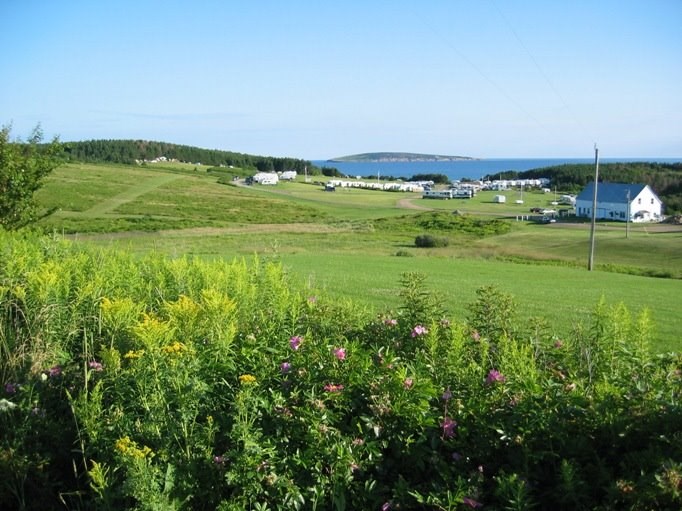
It's like walking on the hair from a Pantene commercial. Wait, no. That's weird.

In Conclusion:
Cape Breton can be a tough place to live. There's no denying that. MoneySense was right when it mentioned the unemployment, the household income, the rainy days, and even the old cars. It's all true. But the way I like to see Cape Breton is like a losing sports team.


Yeah! Just like that one!

See, when a team is winning, everybody comes out to cheer them on. Everyone's optimistic and having a good time, and it's easy. When a team is losing though, a lot of those fans go home, stop watching the games, and make up stories about how bad they are. Not all the fans though. Some fans hang in there, hoping for things to get better, supporting the team even when it's crushing and embarrassing, with a loyalty people on the outside just don't understand.


Oh, you're a Maple Leafs fan? I'm sorry for...um....your life?

The folks out there starting new businesses, acting in plays, teaching classes at the Y and New Dawn, are the fans that stick with it even when it sucks. They're who I see around town, because the fair weather bandwagon fans who only buy tickets when the playoffs are in sight stay home.
In the end, it's easy to be cynical. It's fun, and picking apart every new idea can make you feel smart because "you can't be a critical thinker without being CRITICAL!" And after everything we've been through, after 40 years of declining population, declining salaries, plans that fell through and saviors that never showed up, it's easy to expect things to just stay the same.

You might think my optimism comes from a place of ignorance. I'm young and haven't been here long. Maybe I just don't know the realities of the situation, or the political patterns that repeatedly loop around every decade or so. It might be true that I'm not experienced or wise enough to know the difference, but I do know there are stories around Cape Breton that aren't being told, or are being willfully ignored. I also know there's a hell of a difference between a community that has given up and one that has taken some hard knocks and keeps it's head held high. In the end, a lot of the negativity is true, but a lot of it's not.

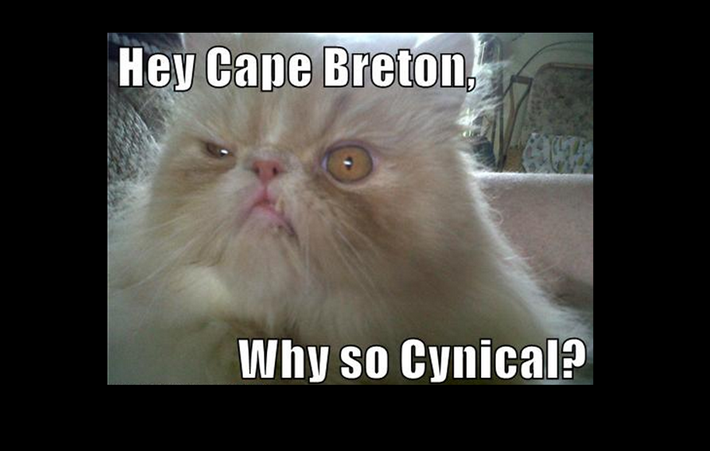




38
Log In or Sign Up to add a comment.- 1
arrow-eseek-e1 - 7 of 7 itemsFacebook Comments